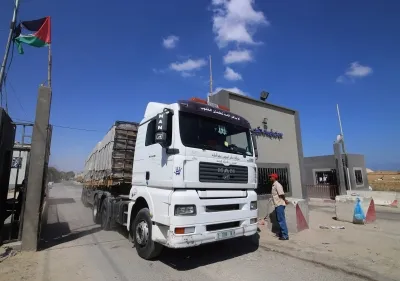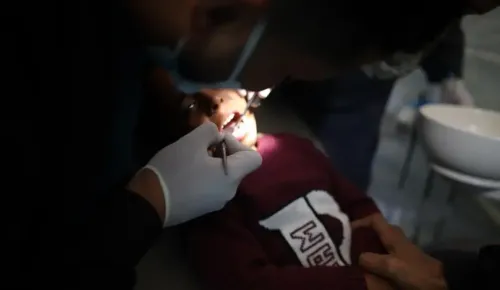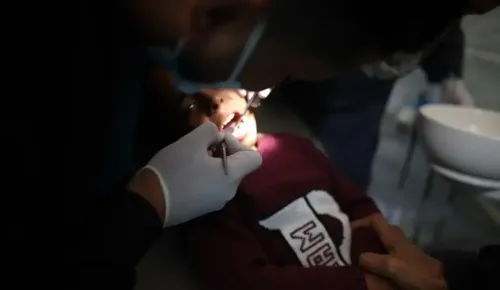Will the UN's Aid Efforts in Gaza Be Enough?

Synopsis
Key Takeaways
- Five UN aid trucks have entered Gaza, but the UN deems it inadequate.
- Israel has lifted the blockade for limited aid delivery.
- Hamas requires 500 aid trucks daily to address the humanitarian crisis.
- The situation remains critical with over 53,000 casualties reported.
- International pressure is mounting for more substantial aid efforts.
Jerusalem, May 20 (NationPress) Five UN aid trucks have entered the war-ravaged Gaza Strip, according to a unit under Israel's Defence Ministry. This development comes just a day after Israel decided to lift a blockade that had lasted for over two months, permitting a limited amount of relief into the enclave. However, the UN has deemed this measure insufficient to address the urgent humanitarian crises facing Gaza.
The trucks, carrying essential supplies including baby formula, passed through the Kerem Shalom border crossing after undergoing necessary security checks, as reported by the Coordinator of Government Activities in the Territories (COGAT), an official Israeli organization that oversees civilian matters in the occupied Palestinian territories.
COGAT stated on the social media platform X that the IDF (Israel Defense Forces) will persist in facilitating humanitarian aid to Gaza while striving to ensure that none of the supplies fall into the hands of Hamas.
However, Tom Fletcher, the UN Under-Secretary-General for Humanitarian Affairs, expressed on X that the trucks represent merely "a drop in the ocean." He emphasized that aid must reach civilians who are in desperate need and called for permission to significantly increase the supplies.
Earlier on Monday, a media office associated with Hamas indicated that to prevent a complete humanitarian disaster in Gaza, a minimum of 500 aid trucks must be allowed to enter daily. Additionally, the enclave requires 50 fuel trucks each day to ensure the operation of bakeries, hospitals, and water and sewage facilities that have ceased functioning due to the Israeli blockade since March 2, as reported by Xinhua news agency.
On Sunday, Israeli Prime Minister Benjamin Netanyahu stated that Israel would permit the entry of a "minimal and basic" quantity of aid into Gaza to avoid "images of mass starvation." This decision follows a recommendation from the Israeli military, along with pressure from Israel's close allies and growing international criticism over the severe humanitarian situation in Gaza.
The aid arrived as Israel commenced its new military operation, termed Gideon's Chariots, over the weekend. Israeli officials mentioned that the campaign aims to capture key areas of Gaza, displacing a significant portion of its population further south, while also resuming humanitarian aid distribution under stricter Israeli oversight.
On Monday, the Israeli military reported that it had targeted 160 locations across Gaza over recent hours, focusing on militants, anti-tank missile launchers, military infrastructure, and a weapons depot. The military also announced the dismantling of a tunnel in southern Gaza and an attack on a structure in Nuseirat, which allegedly served as a Hamas command and control center.
According to Gaza-based health authorities, at least 136 individuals have died from Israeli strikes over the past day, increasing the total death toll since hostilities began on October 7, 2023, to 53,475.










